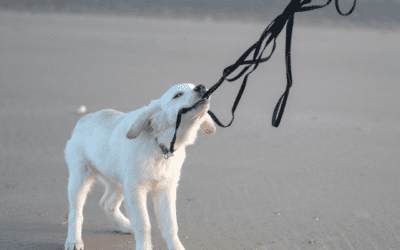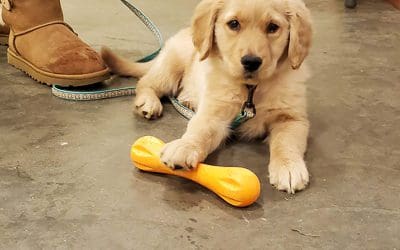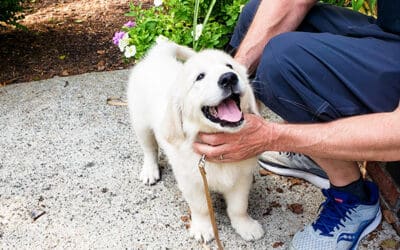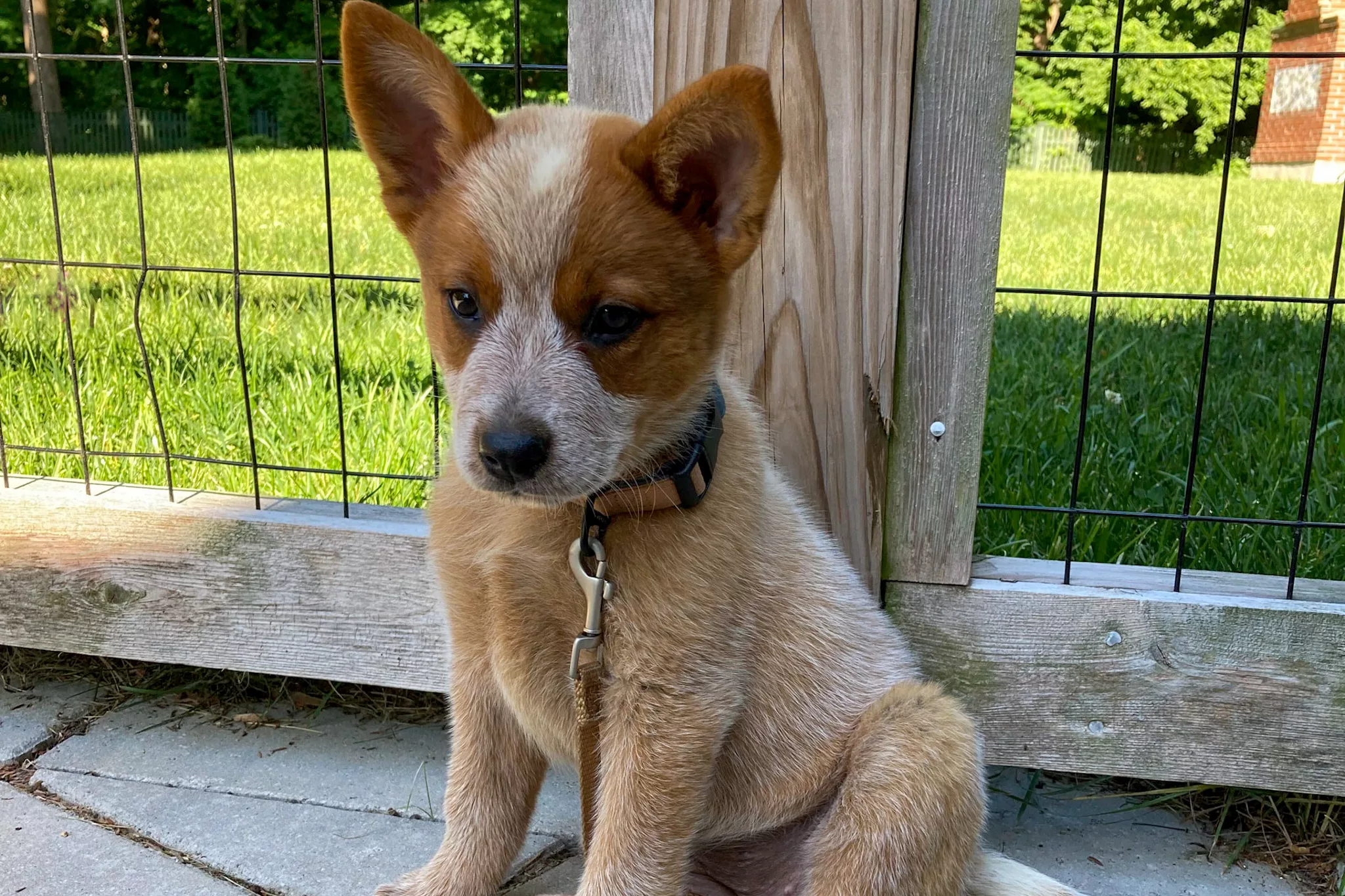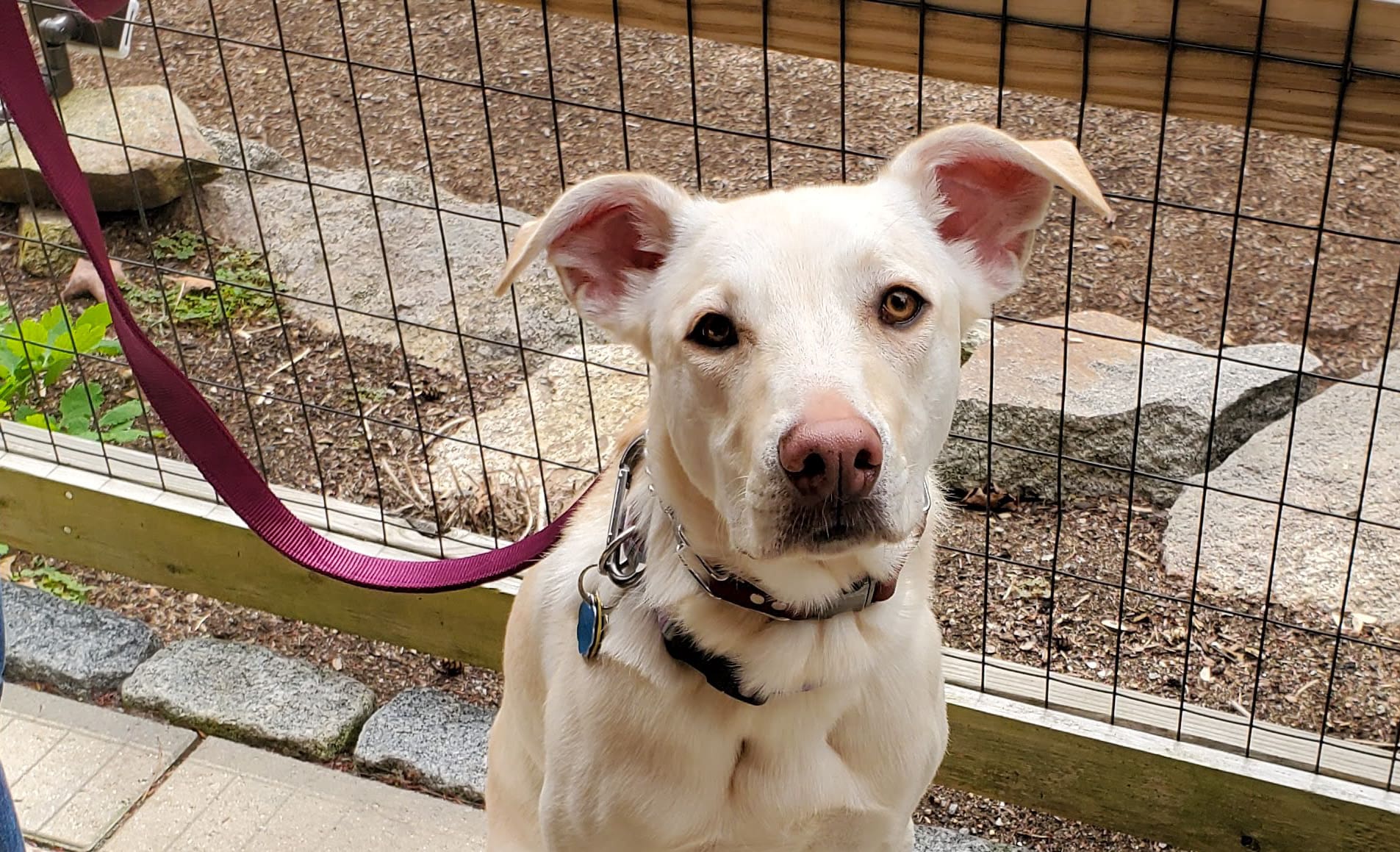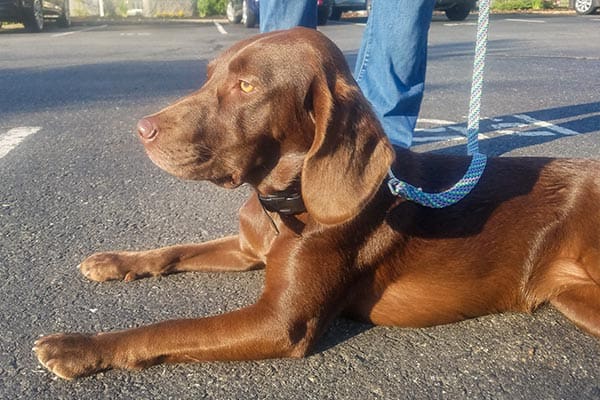Running your puppy tired doesn't create a calm dog Young puppies don’t have the mental capacity for long walks There are more valuable ways to start your puppy toward being an awesome dog It is best to practice moderate expectations and incorporate short walks into...
Puppy Training Articles
Starting puppy training early helps set you up to have a great dog. We cover basics like crate training a puppy, potty training, basic leash skills, and more. Our comprehensive approach to puppy training centers a calm state of mind, getting you and your dog ready for future obedience training.
Training Your Dog for the Vet
Your dog doesn’t have to love the vet, but she does need to be on good behavior. Vets work long hours to care for our beloved canines; we can help make their job a bit easier by training our dogs for the vet. Getting your dog ready for the vet also means training her...
Training Your Dog for the Groomer
Every dog will need grooming regardless of the breed and training is important to making that possible. Your goal is to start small, getting your puppy used to the motions and sensations of brushing, nail clipping, and even bathing. Through regular handling, slow...
Crate Training: Raising a Calm Puppy to be a Confident Dog
Raising a well-behaved dog starts by establishing a calm state of mind during puppyhood. Beginning with crate training your new pup will set your family up for long-term success. When you crate train your puppy, you teach them how to self-settle. This assigns your...
When Is the Best Time to Get a Second Dog? Expert Tips for a Smooth Transition
There are pros and cons of getting a second dog. Thinking through each point is essential before introducing another pup to your household. Here are some tips that will help you make the best decision.When is Right to Get a Second Dog? As dog trainers, we’re often...
When and Why To Keep a Leash on Your Dog in the House
Keeping a leash on your dog while inside your home is an easy and effective way to guide your dog’s behavior. Leashes are traditionally used on walks, outside of the house, but added training value can be found in using them inside. Many people seek out dog training...
“My Dog Won’t Stop Biting the Leash. How Do I Make It Stop!”
It’s typical and natural for a puppy or an untrained dog to put the leash in their mouth. It takes patience to work with your dog to make walks and daily life less frustrating and see them drop their leash. Here are points to remember as you start to convey better...
Crate Training a Dog
Full crate training a dog is teaching them to self-settle in their dog crate, with the door closed, whenever you place them in the crate for a nap or nighttime sleep. This approach yields the most benefits of crate training and contributes to better behavior outside...
Best Puppy Tips
Getting a new puppy is a big milestone. Whether you’re a seasoned dog owner or it’s your first dog, these puppy training tips will help get you started. The more time you put in with your puppy now, the quicker success you’ll have getting better behavior in the...
Housebreaking Your Dog
Housebreaking a dog can be a frustrating time but it is an essential lesson in how to train a puppy. It may seem like no matter what you do you cannot get your dog to “Go” outside and then end up cleaning up a mess or puddle in your home. This can drive you to...
Now Offering Training in Somerville, Cambridge, Medford & Surrounding Area!
See the full list of areas served
North Shore MA In-Person Dog Training
Puppy Training
Team Puppy is for dogs ages 8-16 weeks. The program is 3 sessions, one-on-one and covers:
- Setting a feed and sleep schedule
- Crate training
- Potty training
- Controlling nipping, barking, and more
Foundation Training
Foundation training is a comprehensive approach to dog training. Whether you're looking for obedience training or behavior modification, Our results-driven dog training is a deep dive into how you and your family interact with your dog.
Basic challenges we address include:
- Leash reactivity
- Food and resource guarding
- Fear and separation anxiety
- Dog-to-dog aggression
- Socialization
- Basic dog obedience
Remote Collar Training
Remote collar training is for the dog that tends to make bad choices, is uncontrollable, does not listen to you, or is easily over-excited.
Remote collar training includes all the lessons of our Foundation Program with practice in:
- Sit, place (stay), heel, and down
- Off-leash recall
- Proper responses to excessive barking and resource guarding







